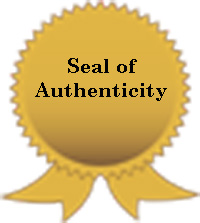Amoung the western classical ensembles, that is orchestras, bands, and choirs, the world music or cultural music movement has been most deeply felt amongst choirs. There are many reasons for this, the primary one most likely being that the there are appealing songs from many cultures and there are so many choral singers in the world that cultural musics becoming part of the repertoire was probably a forgone conclusion. Folk song arrangements have long been a favourite part of the literature. Still, approaching any song that is not in the Western canon or of a Western musical tradition always involves some special considerations.
Recently, there have been a large of number of choral works appearing on festival repertory lists that sound “ethnic.” Sometimes they have nonsense texts, but often they have real texts from a non-Western or non-Western-classical tradition. Only, in some of these cases the music is newly composed “in the style of” by a choral arranger. Some, through marketing and wording of preamble materials, attempt to pass themselves off as authentic cultural works, others make no such attempt. These kinds of pieces are being composed as they fill a vacuum between musicians’ desire to perform cultural works and the ability of the publishing companies to provide arrangements or compositions to fill that niche. As a scholar and performer I am deeply suspicious of such works — I tend not to program them for my own groups. But, I understand why a composer would create them. What do we accomplish by rehearsing and performing these works. Are we exposing singers to cultural musics, challenging them with unfamiliar systems, inspiring them with a new window on our world? Or, something else? What?
With newly composed works “in the style of” we run no risk of showing disrespect as we need not strive for cultural authenticity. We simply need to do what is written down in the score. This seems easy enough. But, does programming such works give our singers and audiences the kind of experience they can have with authentic cultural musics? The questions that cultural music performance demands of us is more valuable than the inadequate and rationalized answers we most often generate. It is valuable to ask ourselves what the music itself is about, why a group of people might have kept singing such a piece, and what it means to share in the experience of singing that piece even if final answers seem trivial or less than insightful. It is the inquiry process itself that reveals the value of striving for authenticity.
Cultural music performance is a bit about stylistic signifiers (rhythms, modes, scales, articulations), but it is much more about our relationship to others who have carried this music through time and experience. With each person that takes up a piece of music, the piece grows and changes. The remarkable thing is that as we are changing the piece — altering it, arranging it for a Western choir, using our training to communicate it — the piece is also changing us. Cultural music is a remarkable opportunity for transformative experience. Music written “in the style of” is merely a shadow of its cultural originator or inspiration. Some of these works are indeed creative and inspired. This makes me think they should and can be performed effectively. But, a deep opportunity to connect with others through more authentic music is simply not available through such works.
Choral singers love learning and singing cultural musics (think of how beloved the Spiritual has become). Singing songs that were passed down through generations as comfort songs, freedom songs, or even lullabies invites us into a deeper experience and exploration of what it is to be human.
We are mysteries to ourselves. Much of what we are defies our understanding. Music helps us towards something of an understanding, an experience, perhaps a sharing of a piece of the human puzzle. Singing cultural musics, even the attempt, represents an invitation towards connection and sharing across temporal, political, and geographic boundaries with those “others” who also loved to sing.

 Musics from all over the globe bombard us daily. They range from European classical, Cape Breton folk, to Chinese pop (Cantonese and Mandarin), from punk to Jamaican Reggae, and beyond. In music performance circles — acapella groups, choirs, rock bands, etc. — authenticity comes up a lot especially when working with cultural musics. There are unsettling questions. Is it important to perform cultural music in an authentic manner? Is such a thing even possible? What does it mean to be ‘authentic’? What is Cuban about Afro-Cuban music? What does it mean to be authentic in shakuhachi’s honkyoku (original melodies)? Can a non-Native American play Native American flute authentically? Is authenticity related to genetics, culture, belief (a real issue in church music)?
Musics from all over the globe bombard us daily. They range from European classical, Cape Breton folk, to Chinese pop (Cantonese and Mandarin), from punk to Jamaican Reggae, and beyond. In music performance circles — acapella groups, choirs, rock bands, etc. — authenticity comes up a lot especially when working with cultural musics. There are unsettling questions. Is it important to perform cultural music in an authentic manner? Is such a thing even possible? What does it mean to be ‘authentic’? What is Cuban about Afro-Cuban music? What does it mean to be authentic in shakuhachi’s honkyoku (original melodies)? Can a non-Native American play Native American flute authentically? Is authenticity related to genetics, culture, belief (a real issue in church music)?